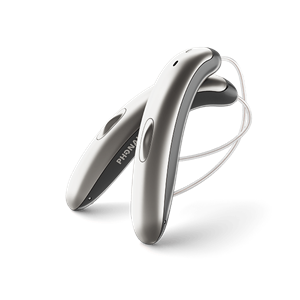Hearing loss 101: Tips to prevent hearing loss before it starts

Hearing loss 101: Tips to prevent hearing loss before it starts
7 min.
Publication Date: July 10, 2025
Did you know that over 5% of Canadians have experienced some form of hearing loss? That might not seem like a lot, but 5% is more than 1.6 million people. Hearing loss in Canada is an issue faced by many, and the subtle and gradual ways it progresses can make it difficult to notice at first. However, early recognition and taking preventative measures is easier than you might think—and can make a big difference.
The early signs of hearing loss
Many of the initial symptoms of hearing loss can easily be mistaken for simply being distracted or exhausted. Still, it is important to recognize that experiencing these early symptoms might point towards potential hearing loss:
Asking people to repeat themselves: Do you often need people to say things louder or clearer? If you are consistently struggling to understand people, you may be experiencing hearing loss.
Trouble hearing in noisy environments: If you’re frequently having difficulties understanding people in a noisy environment, it might not just be because of your surroundings.
Turning up the volume on devices: Is the noise always too low? If you always have to turn the volume up just to be able to hear, this could be a warning sign of hearing loss.
Missing parts of conversation: Are you unable to always get the full picture when in dialogue? Distinct from tuning out, you may find yourself unable to register full conversations.
Withdrawal from social settings: Do you avoid social engagements due to anticipation of fatigue or embarrassment from having to listen and being unable to properly do so?
What causes hearing loss?
There are many potential causes of hearing loss. One of the most common causes, however, is aging. As we grow older, our ability to hear naturally degrades as time passes. Age-related hearing loss, also known as presbycusis, affects one in every three people by age 65.
Another potential cause is noise exposure. Loud noises can come from a variety of sources and are especially prone to influencing your hearing health, especially if you’re not equipped with proper hearing protection. Workplaces, concerts, and headphones are all possible sources of excessive noise exposure.
Earwax blockage is another cause for concern when it comes to hearing loss. The buildup of earwax can result in irritation and temporary hearing loss.
Medical conditions, such as diabetes or heart disease, can also impact hearing and contribute to hearing loss. Additionally, certain medications can affect hearing, so always be sure to discuss side effects with your primary healthcare provider.
On a related note, genetics can also play a role in the onset of hearing loss. If there is a history of hearing loss in your family, you may be more likely to experience hearing loss.
Hearing loss prevention
Now that we have a better understanding of early signs and common causes of hearing loss, the next step is to understand what preventative measures can be taken:
Use hearing protection
If you’re expecting to be in a loud environment, such as near machinery or at a concert, wear proper ear protection to prevent hearing loss. Depending on the specifics of the source of the noise, you can use different kinds of hearing protection, such as earmuffs, earplugs, or custom hearing protection provided by your local hearing care professional.
Turn the volume down
An easy step that anyone can take at any time is to lower the volume on your personal devices. Whenever possible, keeping the audio low or moderate instead of loud can help preserve the quality of your hearing in the long run.
Maintain good health
The cardiovascular system, which is made up of your blood cells and heart, is closely connected to your hearing. The inner ear is especially sensitive to blood flow, and requires a steady supply of oxygenated blood to maintain proper function. A healthy body means healthy hearing. Regular exercise, a heart-healthy diet, and managing your stress can all help protect your hearing.
Avoid inserting objects into your ears
Maybe you’ve heard that you're not actually supposed to use cotton buds to clean your ears, and that’s for a good reason. Inserting objects into your ears carries a number of risks, such as damage to the eardrum, inducing earwax blockage, or increasing risk of infection.
Get regular hearing checkups
If you are frequently exposed to loud noises, have a family history of hearing loss, or are over 65, making time for regular ear checkups to catch issues early can be an important step to take to prevent hearing loss.
The importance of early detection
Being proactive about hearing issues can make a big difference when it comes to getting the most out of your potential treatments. If you know what you’re facing ahead of time, you can protect your hearing much more effectively.
By detecting hearing loss problems early, you can even improve your quality of life thanks to the positive effects of improved communication and relationships between yourself and others. Additionally, with modern solutions such as hearing aids, hearing loss has only become easier to manage.
How we can help
If you’re experiencing changes in your hearing—or even just have questions—Connect Hearing is here to support you. With local clinics across the country, we provide personalized, compassionate care no matter where you are in Canada. Our team of hearing care professionals is ready to offer expert advice tailored to your needs, and you can also explore our comprehensive guide to hearing loss to learn more.
Curious about where your hearing stands today? Our quick and easy hearing test can help you get started. It’s a convenient and effective way to check in on your hearing health.
Hearing changes are a normal part of aging, but that doesn’t make them any less challenging. The good news is that effective, accessible solutions are available—and early detection can make all the difference. If you've noticed something's changed, you're not alone. When you're ready to take that first step, we’re here to help.



